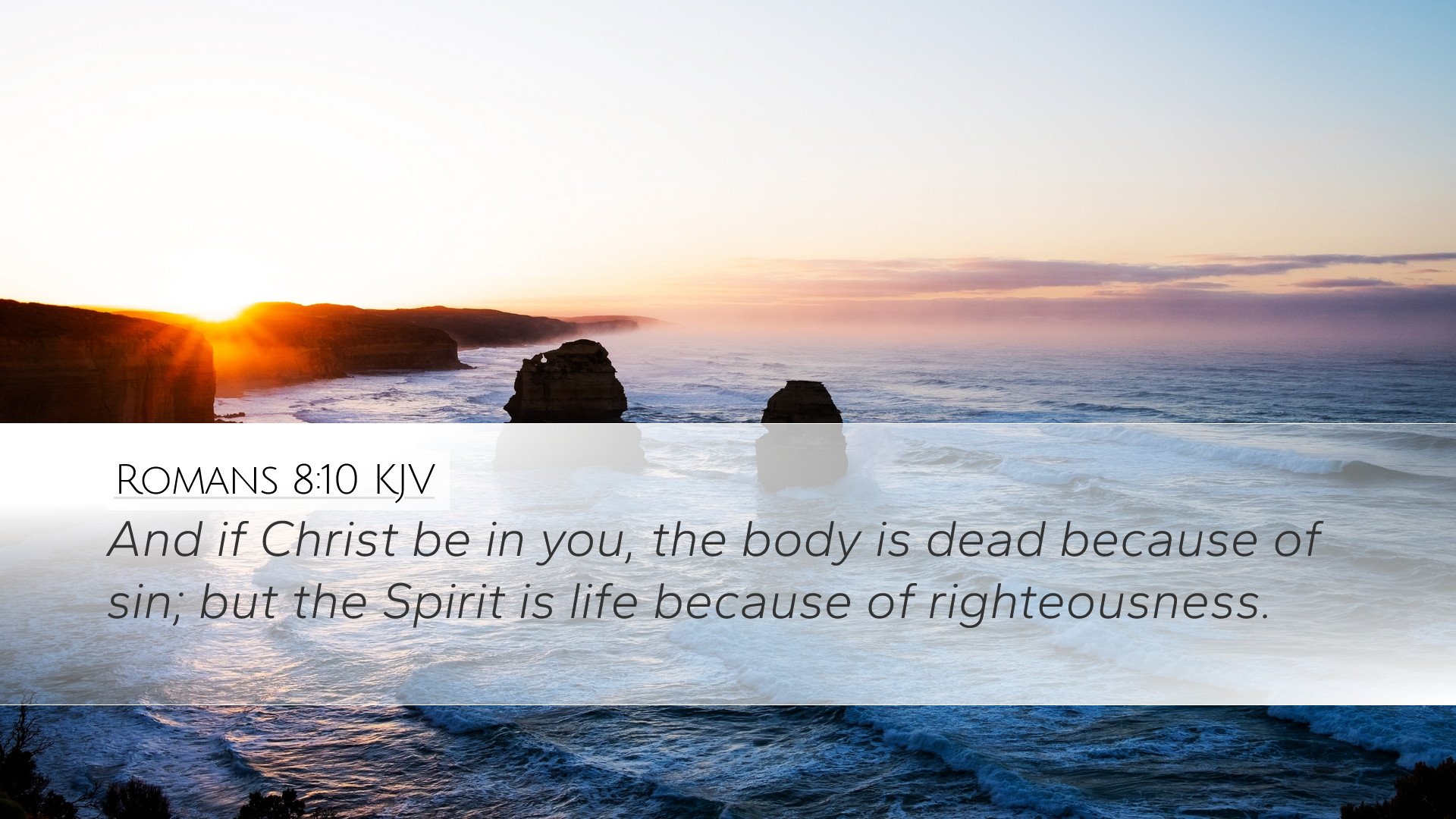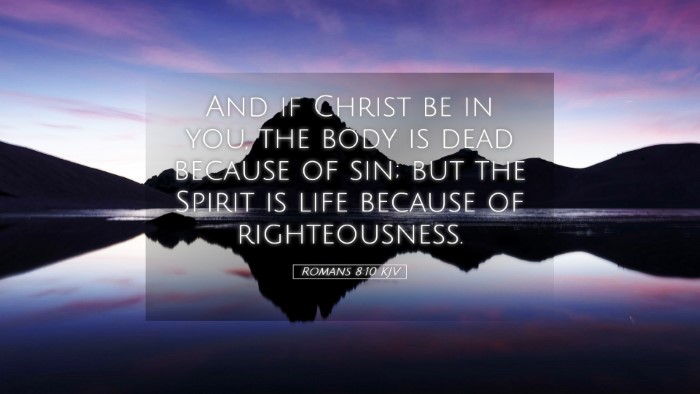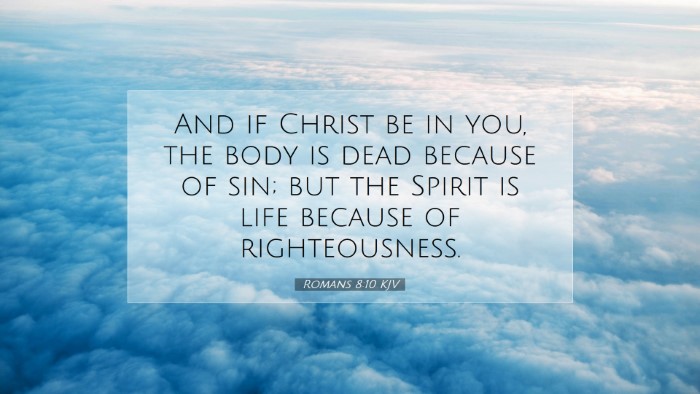Commentary on Romans 8:10
Bible Verse: Romans 8:10 - "And if Christ be in you, the body is dead because of sin; but the Spirit is life because of righteousness."
Introduction
This verse encapsulates the profound theological implications of the believer's relationship with Christ and the ongoing conflict between the flesh and the Spirit. In this commentary, we will explore the insights provided by esteemed theologians such as Matthew Henry, Albert Barnes, and Adam Clarke, drawing upon their rich theological backgrounds to deepen our understanding of this passage.
The Nature of the Flesh and the Spirit
Matthew Henry emphasizes the contrast between the state of the flesh and that of the Spirit. He explains that although the body is mortal and subject to death due to sin, the presence of Christ within the believer grants life through the Spirit. This duality is crucial for understanding the Christian experience. The body, which is essentially 'dead' due to the weight of sin, does not have the final say over the believer's condition. Instead, it is the indwelling of the Holy Spirit that breathes life into the believer.
Theological Implications of "Christ in You"
Albert Barnes remarks on the transformative power of having Christ within the believer. This phrase denotes not merely a theoretical understanding but an active, living relationship with Jesus. The indwelling presence of Christ serves to regenerate the heart and mind of the believer, imbuing them with new life and purpose. It is this relationship that enables believers to overcome the influence of sin and to pursue righteousness.
- Christ as Life: The essence of Christianity hinges on the believer's connection to Christ, who is the source of spiritual life.
- Victory Over Sin: Through this relationship, believers are empowered to declare victory over the remnants of sin that still dwell in their bodies.
Understanding Sin in the Body
Adam Clarke elaborates on the idea that the body is 'dead because of sin.' He elucidates how the sinful nature affects the body, leading to death and corruption. The body, in its natural state, succumbs to temptation and sin, resulting in spiritual death. However, Clarke also accentuates that this condition is not the end for the believer, as they are not merely defined by their bodies or their sinfulness.
The Role of Righteousness
Henry further comments on the correlation between righteousness and life. The believer, through the Spirit, is called to pursue righteousness, which is made possible by the work of the Holy Spirit. This divine influence enables them to live a life that is pleasing to God, distinguishing them from those who remain in their sinful state.
- Righteousness as a Lifestyle: True righteousness is not simply an external adherence to the law but a lifestyle empowered by the Spirit.
- Living by the Spirit: This pursuit of righteousness is integral to the Christian walk, marking a significant departure from a life governed by sin.
Application for Believers
This verse serves as both a comfort and a challenge for modern believers. It is comforting to know that while the mortal body is destined for death, the Spirit brings life and hope. This contrasts sharply with the prevailing cultural narrative that glorifies the fleshly experience. It challenges believers to focus not on their state of sinfulness but rather on their identity in Christ.
- Identity in Christ: Knowing that Christ is in us transforms our understanding of our identities and purpose.
- Living Empowered Lives: We are called to live lives that reflect the righteousness of God, drawing strength from the Spirit.
Conclusion
Romans 8:10 highlights the profound dichotomy between the believer’s sinful nature and the life-giving power of the Spirit. Drawing from the insights of Matthew Henry, Albert Barnes, and Adam Clarke, we see that the reality of Christ's indwelling presence radically alters our existence. As believers, we are called to embrace this truth, striving for righteousness while resting in the assurance that the Spirit of God empowers us to live according to His will. This understanding is essential for pastors, students, and theologians as it encapsulates the core of the Christian faith.


